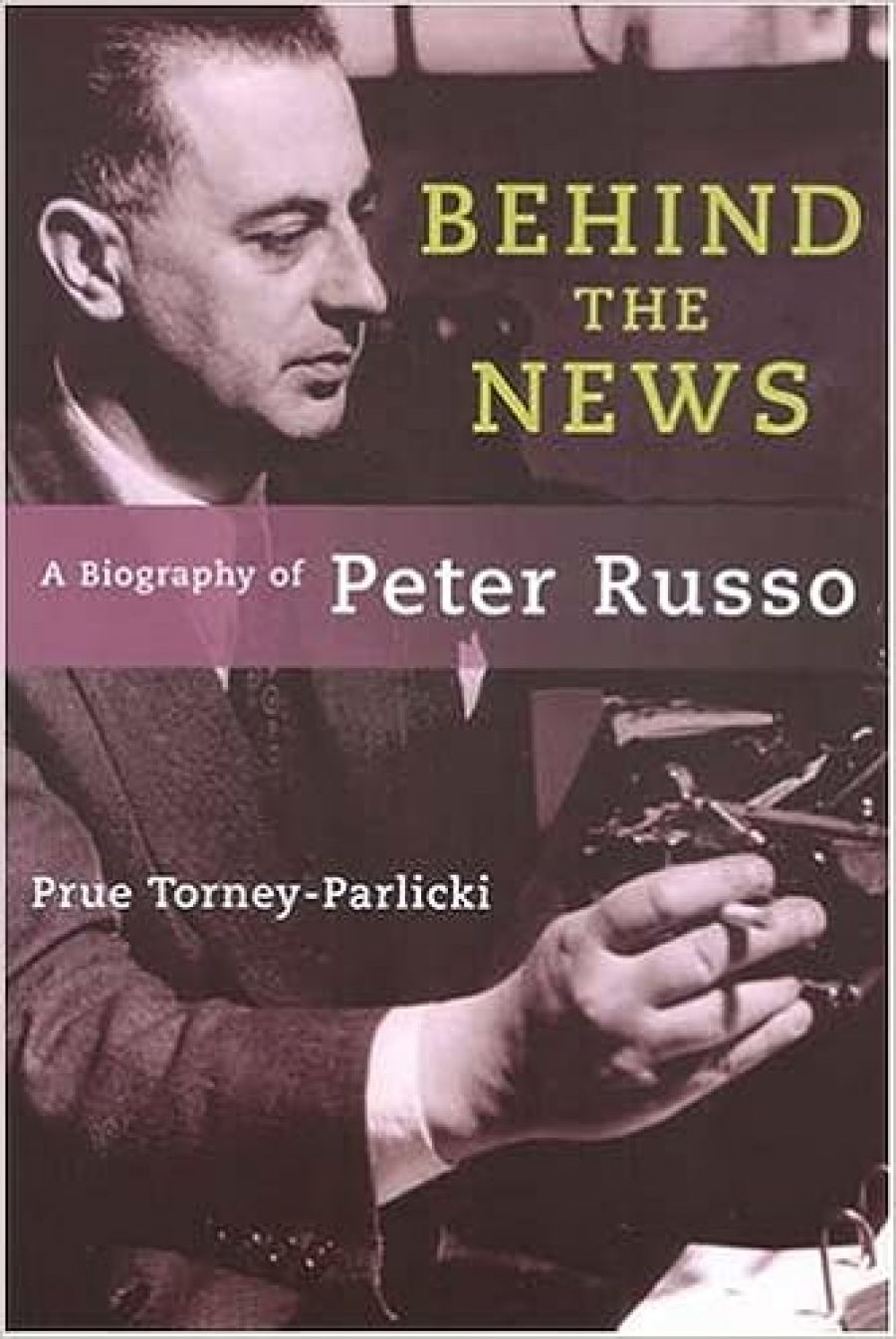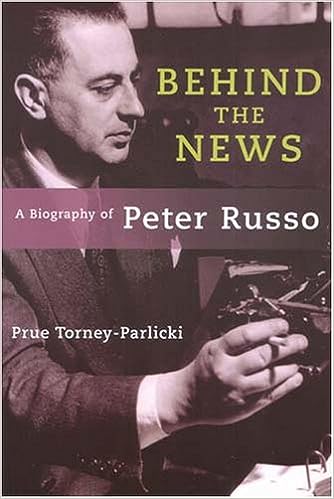
- Free Article: No
- Contents Category: Biography
- Review Article: Yes
- Online Only: No
- Custom Highlight Text:
Many older readers of ABR would remember Peter Russo – whether fondly or otherwise – for his newspaper columns (principally in the Melbourne Argus) from 1941, and for his ABC radio broadcasts, which continued until his death in 1985. As for younger readers: picture a journalist–commentator (his career defied easy description) who was as controversial in his day as any of our present ‘shock jocks’, but who actually knew what he was talking about. Leading politicians approached Russo not to curry favour with his audience but to understand matters within his areas of expertise: Asia and international affairs. Such expertise – including fluency in eight languages – made it difficult to ignore his contributions to public discourse which, as Prue Torney-Parlicki’s biography makes clear, were substantial. Until this biography (the first comprehensive study of the subject to be published), Russo risked being remembered not for what he said or did but, rather, for what others said about him.
- Book 1 Title: Behind the News
- Book 1 Subtitle: A Biography of Peter Russo
- Book 1 Biblio: UWA Press, $39.95 pb, 412 pp
- Book 1 Cover Small (400 x 600):

- Book 1 Cover (800 x 1200):

And much was said. Russo’s early skill and interest in Asian languages led him to Japan, where he lived for most of the 1930s, absorbing Japanese culture and forming close associations with the country’s political élite. This brought him under the suspicion of Australian intelligence authorities, who doubted Russo’s loyalty to Australia. After returning to this country in 1941, Russo outraged large sections of the public by writing newspaper columns in defence of Japan. The widespread public perception of Russo as an apologist for Japan – or traitor – remained for years afterwards, until his outspoken views on American–Australian collaboration in the Cold War and Vietnam began to draw fire.
Frequently cynical or acerbic, there was much about Russo to get under the skins of his enemies, and he appears to have regarded the generation of controversy as a measure of his effectiveness as a commentator. Unfortunately, apart from such glimpses, we see little of Russo the private man: he guarded his personal affairs closely, to the point of destroying private papers shortly before his death. Torney-Parlicki’s thorough research into Russo’s professional life, however, paints a clear picture and leaves no doubt about his competence as an Asia expert, whatever the validity or otherwise of his opinions. He was an early and assiduous advocate for better public understanding of Australia’s neighbours, and a consistent critic of simplistic assumptions about Asia.


Comments powered by CComment